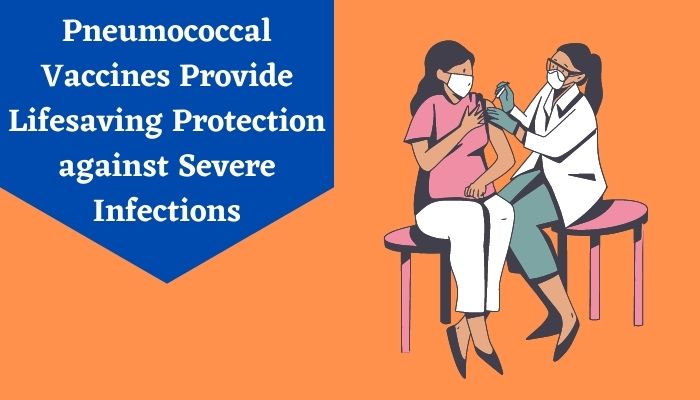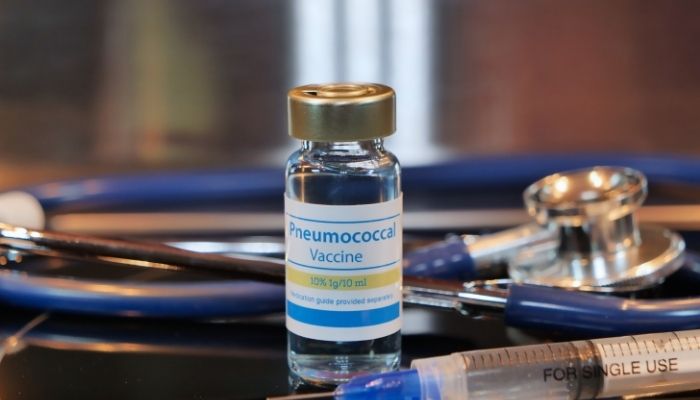Neelam is super excited and joyous over the last few days as she became an aunt for the first time in her life. She is the one who is taking care of the baby and never compromises with the health of her niece. While preparing the list of vaccines for the baby, Neelam included the pneumococcal vaccine in the list because babies are more prone to bacterial infections, including pneumonia and bacterial meningitis.
In this article, we are going to discuss what is a pneumococcal disease and how vaccines are effective against it so that everyone, especially infants and kids must go for this vaccination. Moreover, we will discuss the side effects and is there any possibility for a reaction to pneumonia shot?
What is Pneumococcal Disease?
Pneumococcal disease is a bacterial infection that is primarily caused by Streptococcus pneumoniae or pneumococcus. People may get infected with the bacteria, or they can carry it in their throat (not ill). Those carriers can even spread the disease through breathing, coughing, or sneezing.The pneumococcal disease may cause some severe health issues, including
- Bacterial meningitis (an infection that attacks the brain and spinal cord and may lead to confusion, coma, or even death)
- Pneumonia (a severe lung infection that creates cough, fever, and breathing problems)
- Otitis media (a middle ear infection where you may experience pain, swelling, sleeplessness, fever, and petulance)
- Bacteremia (a lethal infection of the bloodstream)
- Sinus infections
Children are more susceptible to both pneumonia and meningitis. The main problem is that in children, you may not discriminate between the symptoms of meningitis and pneumonia and thus, doctors are unable to recognize them.
Pneumococcal Vaccine
These days, the markets are flooded with two types of pneumococcal vaccines and they are PCV13 and PPSV23.PCV13: this is the only safe vaccine for children under the age of 2. This is an ideal vaccine for infants and young adults as they are more vulnerable to several dangerous infections, including pneumonia and meningitis. This vaccine is available under the brand name Prevenar 13. This vaccine is also useful in treating some older children.
PPSV23: This is another popular vaccine that is suitable for more than 30 years and is recommended for children two years and older. This vaccine gives protection against 23 types of pneumococcal bacteria.
How Does the Pneumococcal Vaccine Work?
Both vaccines inspire your body to generate antibodies against pneumococcal bacteria. Antibodies are proteins that are produced by your body to fight or extirpate disease-carrying organisms and toxins. They prevent you from falling ill if you are infected by the bacteria.More than 90 different strains of pneumococcal bacteria have been identified, but most of them don’t cause any severe symptoms. The childhood vaccine (PCV) safeguards against 13 strains of the pneumococcal bacterium, but the adult vaccine (PPSV) gives protection against 23 strains.
Effectiveness of the Pneumococcal Vaccine
Children give a good response to the pneumococcal vaccine. Both vaccines are effective 50 to 70% at preventing pneumococcal disease. Both of them don’t contain any live organisms, thus they are inactivated or killed by vaccines.Dosage of Pneumococcal Vaccine
Earlier, the PCV7 vaccine covered only seven strains of pneumococcal bacteria, but, now, it has been modified to the PCV13 vaccine that covers 13 strains. A single additional dose of PCV13 is recommended for all children 14–59 months who have received a series of PCV7.All children between 60–71 months with underlying specific medical conditions (who have received an age-appropriate series of PCV7) are also eligible for this vaccine.
Pneumococcal Vaccine Age
PCV is recommended for
- Infants below 24 months should receive four doses of the vaccine. The first dose should be given at 2 months and the next two shots should be given at 4 months and 6 months. The final booster dosage will be given between 12 to 15 months. Children who don’t receive the shot at these times may still get the vaccine. Depending on the child’s age, the number of doses and the time gap will be decided.
- Healthy children between 2-4 years who did not receive the four doses may get only one dose of the vaccine.
PPSV is Recommended for
Anyone (between 2-64 years) who is taking a drug or treatment (steroids, chemotherapy, or radiation therapy) that affects the body's immune systemAnyone (between 2-64 years) who has one of the following (or similar) health conditions may also get vaccinated with PPSV
- Hodgkin's disease
- Lymphoma or leukemia
- Kidney failure
- Multiple myeloma
- Nephrotic syndrome
- HIV infection or AIDS
- Damaged spleen or no spleen
- Organ transplant
- Heart disease
- Lung disease
- Sickle cell disease
- Diabetes
- Alcoholism
- Cirrhosis
- Cerebrospinal fluid leakage
- Cochlear implant
Pneumonia Vaccine Side Effects
Both childhood and adult pneumococcal vaccines may produce some mild side effects.These include:
- An elevated body temperature
- Redness or swelling at the injection site
- Hardness or stiffness where the injection was given
Should Adults Over 65 Get Vaccinated?
If your age is 65 years and you have some underlying health conditions, then you will be more prone to pneumonia if you are not vaccinated. Consult a doctor and go for the vaccination immediately. According to the National Foundation for Infectious Disease, elderly patients with underlying healthcare conditions are more susceptible to get bacteremia and meningitis caused by invasive pneumococcal disease.Also Read: The Best Prevention Against Pneumonia



